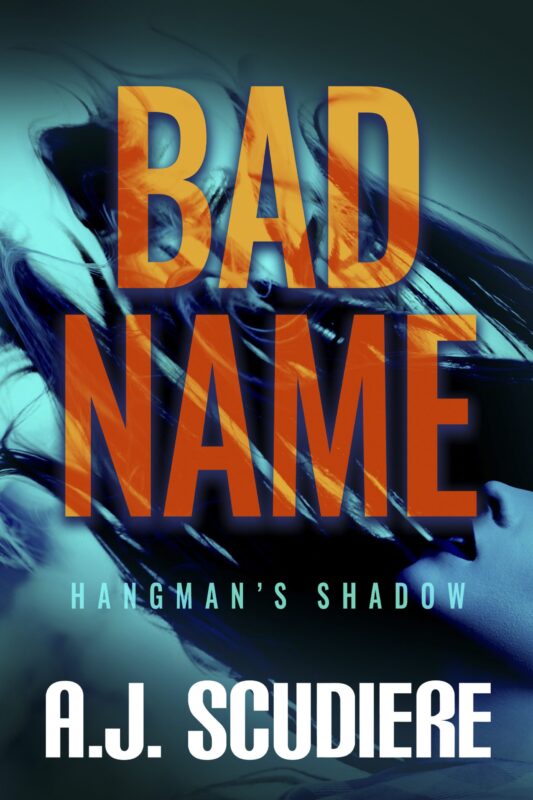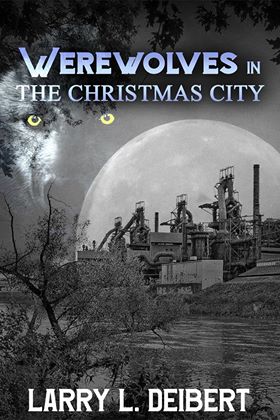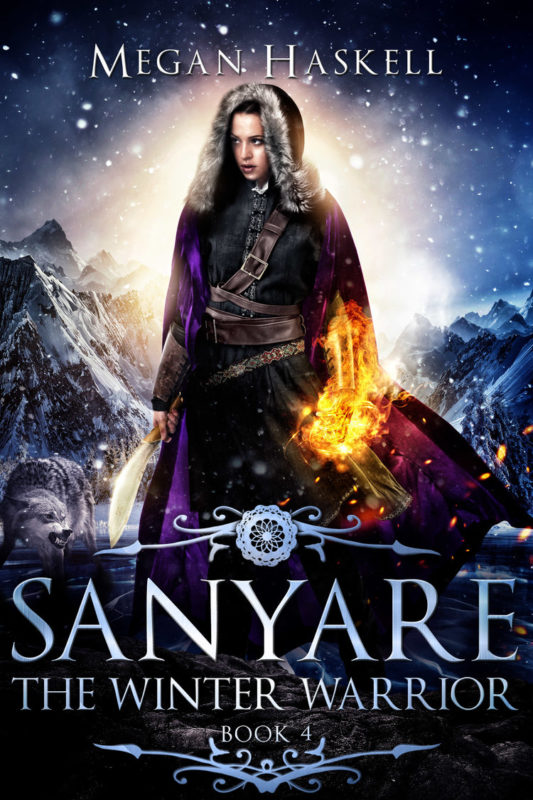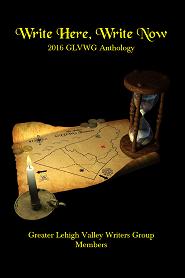H. O. Charles Featured Author of the Month
December 7, 2017 by marianne h donley in category Featured Author of the Month tagged as fantasy, HO Charles, The Fireblace Array

H.O. Charles is an Amazon Top 100 Sci-Fi and Fantasy author of The Fireblade Array – a #2 best-selling series across Kindle, iBooks and B&N Nook in the Sci-Fi and Fantasy categories (#1 would just be showing off, right?)
Okay, it did hit #1 in Epic Fantasy in all those places… BUT DON’T TELL ANYONE because no one likes a bragger.
Though born in Northern England, Charles now resides in a white house in Sussex and sounds like a southerner.
Charles has spent many years at various academic institutions, and cut short writing a PhD in favour of writing about swords and sorcery instead.
Hobbies include being in the sea, being by the sea and eating things that come out of the sea. Walks with a very naughty rough collie puppy also take up much of Charles’ time.
December Featured Author: H.O. Charles
December 1, 2017 by marianne h donley in category Featured Author of the Month tagged as December Feature Author, HO Charles, The Fireblad Array
[tweetshare tweet=”@HOCharles December Featured Author on A Slice of Orange” username=”A_SliceofOrange”]

H.O. Charles is an Amazon Top 100 Sci-Fi and Fantasy author of The Fireblade Array – a #2 best-selling series across Kindle, iBooks and B&N Nook in the Sci-Fi and Fantasy categories (#1 would just be showing off, right?)
Okay, it did hit #1 in Epic Fantasy in all those places… BUT DON’T TELL ANYONE because no one likes a bragger.
Though born in Northern England, Charles now resides in a white house in Sussex and sounds like a southerner.
Charles has spent many years at various academic institutions, and cut short writing a PhD in favour of writing about swords and sorcery instead.
Hobbies include being in the sea, being by the sea and eating things that come out of the sea. Walks with a very naughty rough collie puppy also take up much of Charles’ time.
Is the F-word a bomb?
August 31, 2017 by The Extra Squeeze in category The Extra Squeeze by The Extra Squeeze Team, Writing tagged as HO Charles, Jenny Jensen, Rebecca Forster, The Extra Squeeze, The F bomb, writing
What does the Extra Squeeze Team think about the F-word?
Is the F word a bomb?
We’ve read books with it all over the place and yet notice that readers object to it.
Does anyone really like using it?
Would another word do?
When was it necessary?

Rebecca Forster
USA Today Bestselling author of 35 books, including the Witness series and the new Finn O’Brien series.
Is the F word a bomb?
What kind of fucking question is that?
What kind of friggin’ question is that?
What kind of question is that?
Actually, this is a great question and one I am happy to weigh in on because the use of the F-word had an impact it had on my career.
I began my career as a romance writer (I was fired from this gig because I kept killing characters before they fell in love. My editor suggested a genre change.) I never used the F-word when I wrote romance. When I moved to contemporary women’s fiction I used it sparingly in these longer, more intricately plotted books (the word was only uttered by bad guys).
When I upped the ante and moved into a male dominated genre – legal thrillers – everything changed. Writing became tighter, characters multi-faceted, plots ‘torn from the headlines’ were much grittier. In my writing the F-bomb was spoken by hard charging attorneys and socially marginalized criminals alike to underscore their tenacity for fighting for justice in the former instance or illustrate disdain for the system in the latter.
Hostile Witness* was the first book where I really let loose. Lots of male thriller writers used the word, why not me? My editor at Penguin/Putnam had no problem with it and approved the book. When the Hostile Witness was traditionally published, I received no letters of complaint.
Then came the Internet. I republished the first three books of the Witness Series* and readers started posting reviews as easily as they clicked their Kindle. I remember the first bad review I received because of my use of the F word. It said, “The language in this book is vile. I will never read this author again.”
That stopped me cold, so I went back to the files and searched how many times I had used the F-word. I was shocked and embarrassed by what I found. In my quest to establish myself as a hard-edged thriller writer, I had gone overboard. Using profanity to the degree I had took the reader out of the story at best and offended them at worst. I asked myself, was there a better way to write a scene? A better way to inform a character? Had I been a lazy author and fallen back on a word rather than my skill to get a point across?
The answer to all these questions was yes. Now I use the word friggin’ or cut the word off at Fu — and let the reader’s mind fill in the blank. Bottom line, I took the review to heart, objectively looked at my work and made an informed decision before I re-edited the book. Did I lose anything by banning the F-word?
(F-word deleted) no.
*Hostile Witness is Free to readers.
**Sign up for my mailing list and get Hostile Witness and the Spotlight Novella, Hannah’s Diary, Free.

Jenny Jensen
Developmental editor who has worked for twenty plus years with new and established authors of both fiction and non-fiction, traditional and indie.
The Urban Dictionary defines ‘F-bomb’ as “the strongest weapon in one’s verbal arsenal” (a bit extreme, but it makes the point). Is it necessary to use in fiction? No, not necessary, but sometimes appropriate. The plot, the scene, the character, the action, the tone can all come together to make the F-word the only adjective or expletive that works. In that case, it should be a shocker – a strong, realistic part of the narrative rhythm. The word should be chosen with consideration and, by all the writing gods, don’t overuse it. Repetition strips the word of any value; it just becomes distasteful, silly and embarrassingly adolescent.
It wasn’t long ago a writer would never consider using the word, nor would a publisher let them, although the F word was understood to have the strength of a bomb.
from The Maltese Falcon (Dashiell Hammett, 1930)
The boy spoke two words, the first a short guttural verb, the second ”you”.
“People lose teeth talking like that.” Spade’s voice was still amiable though his face had become wooden.
Great, right!? There are so many options for word smithing around the F-word but that requires thought and skill. Too many authors take the easy way out and use it as verb, adjective and noun. That’s just lazy or the mark of a poor writer.
I recently ran across this Amazon review:
I gave it 5 stars, because the writing, the sense of humor the detective has, and the story! All great! In fact, you are such a good writer, you don’t need to use the “F” word as much as you do! Your characters are great without it!
Such a good writer…you don’t need to use… the reviewer said. That’s exactly what I mean.

Well, a bomb is something designed to explode on impact, so I guess if you want to f-bomb effectively, it needs to be unexpected! In that case, it’ll only detonate properly in the most delicate, sweetest and appeasing of godly novels! But, of course, readers don’t always like to be shocked so hard that they fall off their chairs, and using language that is not in-keeping with the story will only make it jar, in my opinion. As writers, we aim to torture and make our readers emotional from time to time, but there’s intent and then there’s intent.
I don’t mind using swear words – their offensiveness changes over time, and the F-bomb (being polite for you all here), is hardly the most offensive word or phrase out there at the moment. In some novels it’s absolutely appropriate to include swearing, and the target readership will reflect that. I do think over-reliance on a single swear word is a negative thing though. There are so many varied ways of swearing, and it’s up to the author to come up with setting- or character-appropriate vocabulary. In my fantasy novels, I frequently use ‘follocks!‘ (an obvious portmanteau of f**k and boll**ks), because it conveys the emotion I want, but also carries humour and sets the imaginary world apart from this one.
What do you think of using the F-word in fiction?
Ever wonder what industry professionals think about the issues that can really impact our careers? Each month The Extra Squeeze features a fresh topic related to books and publishing.
Amazon mover and shaker Rebecca Forster and her handpicked team of book professionals offer frank responses from the POV of each of their specialties — Writing, Editing, PR/Biz Development, and Cover Design.
Do you have a question for The Extra Squeeze? Contact us here.

How do you prepare for a new book release? How important are blog tours?
June 30, 2017 by The Extra Squeeze in category The Extra Squeeze by The Extra Squeeze Team tagged as blog tours, HO Charles, Jenny Jensen, new book releases, Rebecca Forster, Robin Blakely, The Extra Squeeze Team
Ever wonder what industry professionals think about the issues that can really impact our careers? Each month The Extra Squeeze features a fresh topic related to books and publishing.
Amazon mover and shaker Rebecca Forster and her handpicked team of book professionals offer frank responses from the POV of each of their specialties — Writing, Editing, PR/Biz Development, and Cover Design.
How do you prepare for a new book release? How important are blog tours?

Rebecca Forster
USA Today Bestselling author of 35 books, including the Witness series and the new Finn O’Brien series.
When I published my first book over thirty years ago I assumed the publisher would have all sorts of glittery, fantastic promotions planned that would shoot me to literary stardom.
Not!
In those days – just like these days – the author is responsible for launching their book and establishing their brand. The good news is that now the opportunity for promotion is controllable. I maintain a new release plan that has proven manageable and effective over the course of more than thirty books.
1) Write a good book: professional, exciting, as error free as possible and packaged beautifully. All the promotion in the world will not support an inferior product.
2) Set up your pre-orders and then create excitement with a sneak peek of a few chapters on your website (don’t forget buy links at the end of these chapters).
3) Alert interested parties starting with distribution channels. Smashwords, for instance, has an alert for author’s running BookBub ads. Once they know your ad date, they will pass the information along to their bookstores, those bookstores will consider your book for further promotion. BookBub Partners has an automated per-order alert for your followers. Amazon has the same. Read the distributor’s newsletters and find out what free opportunities are there for the taking.
4) When your manuscript is ready, start submitting it for reviews (I love PRG and InD’Tale).
5) Continue to nurture and grow your social media followers and plan affordable advertising geared toward look-alike audiences. Try sites like LitRing (have loved the 4 promos I’ve done with them). Many advertising sites won’t take pre-order advertising but purchase spots for immediately after your launch while your book is new. I am not a fan of blog tours. I have only paid to do one but I couldn’t quantify the results so for me this isn’t part of my strategy.
The bottom line is this: write well, be aware of what is available, be as genre specific as possible in your target marketing and remember that the launch is the beginning and not the end of your marketing efforts for your book and your brand.

Jenny Jensen
Developmental editor who has worked for twenty plus years with new and established authors of both fiction and non-fiction, traditional and indie.
Marketers say someone has to see your book 7 or 8 times before they buy. I’m not a marketer, so I can’t vouch for that but all the on-line exposure of a blog tour must be good. It can’t hurt – or can it? Just as a poorly written book will not sell, a poorly presented blog tour will turn off your audience before they even turn on. You need to leave a positive, compelling impression.
Prepare Several Blurbs
Since the content should be unique to each site you’ll need to prepare several blurbs – those enticing peeks at your story – not to mention tweets and whatever other social media is on offer. You can approach a blurb in different ways: lead with the most startling action element, lead with the dilemma, lead with a spotlight on character or setting, but lead with a sentence that hooks.
Describe Your Story Well
However you describe your story it’s critical that it be well written. This is, after all, the reader’s first taste of your voice. I’ve read choppy, unstrung blurbs that show what might be an interesting plot if you overlook the way the words are strung together. Regardless of how intriguing the plot sounds my immediate reaction is: This person can’t write. I won’t be reading this one.
Edit. Edit. Edit.
Of course, you’ve written a great book. It’s been carefully crafted, closely edited for errors in all respects from plot and character development to syntax and grammar. Your beta readers love it. Now you have to craft the words to sell the story without a single spoiler and with the same silver voice of the book. Craft your blurbs and interview responses with the same care you gave your book. And edit, edit, edit.
Robin Blakely
PR/Business Development coach for writers and artists; CEO, Creative Center of America; member, Forbes Coaches Council.
You need a PR plan to succeed. Straight up, any plan is better than no plan…and even if you are working with a traditional publisher, your plan may be the only plan that is ever created with much concern about building your long-term career. Accept early that your success as an author is not your publisher’s concern. Their business is centered around the products they have curated for their brand; it includes the book you created–not you.
The reality is, take care of yourself and build your own business.
Phase One is prep time.
Build or refresh your website. Connect your social media platforms to your website. Make sure that you use one author picture across platforms so that your brand has a singular face. Establish a media page to create and post your downloadable press kit. Include links to downloadable high-resolution images of your book cover and your author photo. Make sure you have a landing page for book sales.
Prepare a press release that offers the announcement of your book to share with your local paper, bloggers, industry influencers, and reviewers. Don’t know who they are? Figure it out. Clearly define the top four niches of your audience and start building a database of contacts to help you reach each target. In Phase One, fully create the day-by-day choreography for book launch week.
Phase Two is book launch week.
Synchronize your PR efforts to reach every corner of your world with news about your book in the seven days of the week that your book is first released. Everyone you can imagine needs to know now, all at once. Either plan a parade of activity or nothing will happen.
Phase Three is steady-to-the-course season.
PR efforts must be sustained. That means shift your message from new book announcement to relevant reasons to discover your book, reasons to peek inside, opportunities to read and buy.
How does a blog tour figure into all this? Up to you. The key is to decide when, how, and if you want a blog tour. It is hard work with lots of moving parts. It is a godsend for some authors and hellish for others.
H.O. Charles
Cover designer and author of the fantasy series, The Fireblade Array
I wish I knew the answer to this one because if I did, I would be a ££££££££££££-ionaire by now! I can tell you what NOT to do. When I launched my first book, I did little more than list it on Amazon and submit it to Smashwords. I had no idea about advertising (still learning on that front), and I published in secret, under a pseudonym, so had no friend or colleague network to exploit.
Tip 1: Don’t go it alone – if you know people who can help, use them. This applies to other authors. If they see your work and like it, they might team up with you to do a newsletter promo or similar.
Tip 2: Don’t do what soooo many authors do and sign up to a forum, then post once about your amazing new book. It won’t get you sales, but it will get people’s backs up (may have done this <coughs>).
Tip 3: Don’t list your pre-orders at full price. If you’re unknown, no one will take a chance on you anyway so you may have to lure customers in by being cheap!
Positive tips:
- Do look at advertising opportunities, and check out writers’ forum reviews on their effectiveness.
- Do make sure all of your pages are set up nicely – web page, Goodreads page, Facebook page… etc. so that readers can look you up, contact you and leave reviews easily.
- Try to get on a few blog interviews.
- Do be careful with your PR and the claims you make. It’s perfectly okay to brag about your past achievements, as long as they’re verifiable. I’ve noticed a few writers recently who claim to have sold 200,000 books in a month – you go to their Amazon page, and their book is ranked #100,008,282,212! It’s very easy to see through such fabrications, and once a writer loses trust from their readership, it’s unlikely to be regained.
Last of all, I would say to keep your expectations low. I know that sounds dreadfully pessimistic, but realistically, very few authors do well on one book without the backing of an expensive PR agency. It’s only once you have a good body of work out there and plenty of positive reviews that more readers will start to notice you.
If you have a question or topic you would like the Extra Squeeze Team to tackle please use the this contact form.
Meet The Extra Squeeze Team
April 17, 2017 by marianne h donley in category The Extra Squeeze by The Extra Squeeze Team, Writing tagged as Extra Squeeze Team, HO Charles, Jenny Jensen. Rebecca Forster, Robin Blakley
Ever wonder what industry professionals think about the issues that can really impact our careers? Each month The Extra Squeeze features a fresh topic related to books and publishing.
Amazon mover and shaker Rebecca Forster and her handpicked team of book professionals offer frank responses from the POV of each of their specialties — Writing, Editing, PR/Biz Development, and Cover Design.
Meet the Extra Squeeze Team

USA Today Bestselling author of 35 books, including the Witness series and the new Finn O’Brien series.
Developmental editor who has worked for twenty plus years with new and established authors of both fiction and non-fiction, traditional and indie.


PR/Business Development coach for writers and artists; CEO, Creative Center of America; member, Forbes Coaches Council.

If you have a topic or question for the Extra Squeeze Team, contact the Extra Squeeze online producer Marianne Donley by using the form: http://www.asliceoforange.net/contact/the-extra-squeeze/
Affiliate Links
A Slice of Orange is an affiliate with some of the booksellers listed on this website, including Barnes & Nobel, Books A Million, iBooks, Kobo, and Smashwords. This means A Slice of Orange may earn a small advertising fee from sales made through the links used on this website. There are reminders of these affiliate links on the pages for individual books.
Search A Slice of Orange
Find a Column
Archives
Featured Books
Harlequin Special Edition March 2021 Box Set 2 of 2
Three books in one . . .
More info →WEREWOLVES IN THE CHRISTMAS CITY
Bethlehem, PA has a werewolf problem.
More info →SANYARE: THE WINTER WARRIOR
Her choice won the war, but may have cost her everything…
More info →WRITE HERE, WRITE NOW
2016 GLVWG Anthology (GLVWG Anthologies Book 2)
More info →Newsletter
Contributing Authors
Search A Slice of Orange
Find a Column
Archives
Authors in the Bookstore
- A. E. Decker
- A. J. Scudiere
- A.J. Sidransky
- Abby Collette
- Alanna Lucus
- Albert Marrin
- Alice Duncan
- Alina K. Field
- Alison Green Myers
- Andi Lawrencovna
- Andrew C Raiford
- Angela Pryce
- Aviva Vaughn
- Barbara Ankrum
- Bethlehem Writers Group, LLC
- Carol L. Wright
- Celeste Barclay
- Christina Alexandra
- Christopher D. Ochs
- Claire Davon
- Claire Naden
- Courtnee Turner Hoyle
- Courtney Annicchiarico
- D. Lieber
- Daniel V. Meier Jr.
- Debra Dixon
- Debra H. Goldstein
- Debra Holland
- Dee Ann Palmer
- Denise M. Colby
- Diane Benefiel
- Diane Sismour
- Dianna Sinovic
- DT Krippene
- E.B. Dawson
- Emilie Dallaire
- Emily Brightwell
- Emily PW Murphy
- Fae Rowen
- Faith L. Justice
- Frances Amati
- Geralyn Corcillo
- Glynnis Campbell
- Greg Jolley
- H. O. Charles
- Jaclyn Roché
- Jacqueline Diamond
- Janet Lynn and Will Zeilinger
- Jaya Mehta
- Jeff Baird
- Jenna Barwin
- Jenne Kern
- Jennifer D. Bokal
- Jennifer Lyon
- Jerome W. McFadden
- Jill Piscitello
- Jina Bacarr
- Jo A. Hiestand
- Jodi Bogert
- Jolina Petersheim
- Jonathan Maberry
- Joy Allyson
- Judy Duarte
- Justin Murphy
- Justine Davis
- Kat Martin
- Kidd Wadsworth
- Kitty Bucholtz
- Kristy Tate
- Larry Deibert
- Larry Hamilton
- Laura Drake
- Laurie Stevens
- Leslie Knowles
- Li-Ying Lundquist
- Linda Carroll-Bradd
- Linda Lappin
- Linda McLaughlin
- Linda O. Johnston
- Lisa Preston
- Lolo Paige
- Loran Holt
- Lyssa Kay Adams
- Madeline Ash
- Margarita Engle
- Marguerite Quantaine
- Marianne H. Donley
- Mary Castillo
- Maureen Klovers
- Megan Haskell
- Melanie Waterbury
- Melisa Rivero
- Melissa Chambers
- Melodie Winawer
- Meriam Wilhelm
- Mikel J. Wilson
- Mindy Neff
- Monica McCabe
- Nancy Brashear
- Neetu Malik
- Nikki Prince
- Once Upon Anthologies
- Paula Gail Benson
- Penny Reid
- Peter Barbour
- Priscilla Oliveras
- R. H. Kohno
- Rachel Hailey
- Ralph Hieb
- Ramcy Diek
- Ransom Stephens
- Rebecca Forster
- Renae Wrich
- Roxy Matthews
- Ryder Hunte Clancy
- Sally Paradysz
- Sheila Colón-Bagley
- Simone de Muñoz
- Sophie Barnes
- Susan Lynn Meyer
- Susan Squires
- T. D. Fox
- Tara C. Allred
- Tara Lain
- Tari Lynn Jewett
- Terri Osburn
- Tracy Reed
- Vera Jane Cook
- Vicki Crum
- Writing Something Romantic
Affiliate Links
A Slice of Orange is an affiliate with some of the booksellers listed on this website, including Barnes & Nobel, Books A Million, iBooks, Kobo, and Smashwords. This means A Slice of Orange may earn a small advertising fee from sales made through the links used on this website. There are reminders of these affiliate links on the pages for individual books.






















































